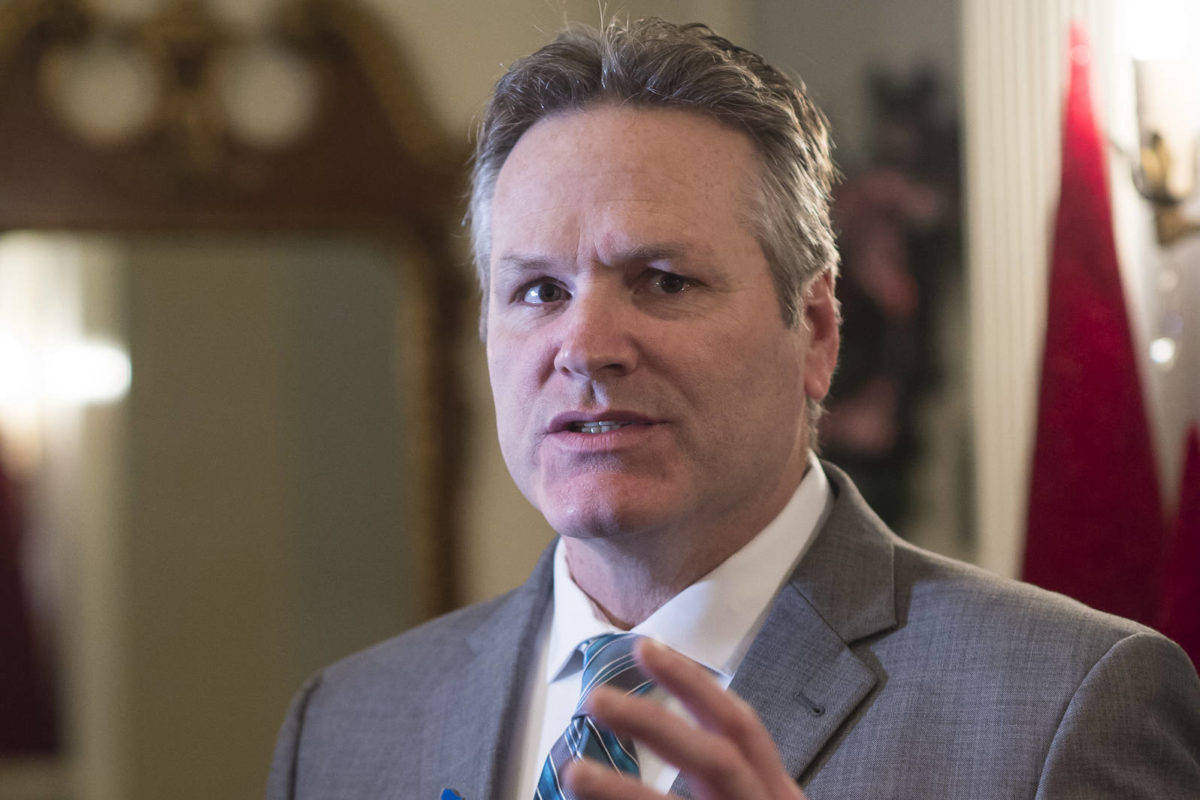Nearly seven years ago, 13-year-old Mackenzie Howard was murdered in the tight-knit community of Kake, Alaska. A night passed before the first law enforcement officer arrived from over 100 miles away. While the details change, Mackenzie’s story repeats itself many times over.
Tragically, Alaskan women are killed by men at the highest rate in the country, and murder remains the third-highest cause of death for Alaska Native women. According to a University of Alaska Anchorage study, 60% of women in Alaska report suffering violence at the hands of an intimate partner. Clearly, our obligation to Alaska’s 350,000 women and girls remains unmet.
As governor of Alaska, and proud father of three capable young women, it has been my goal since my first day in office to close this dark chapter in our state’s history. To that end, I signed legislation last summer drastically increasing the penalties and expanding the criteria for rape and sexual abuse. This included repealing the marriage defense for sexual abuse — a major step forward in our fight to end domestic abuse. Our bill also brought Alaska’s criminal code into the 21st century by punishing those who make a habit of harassing women with unsolicited explicit texts.
Likewise, funding for law enforcement and victim services received a significant boost this year, allowing us to hire more Alaska Troopers than any other year in the previous decade. Additionally, our 26 emergency shelter and victim assistance programs received more funding than ever before.
I am also proud to report that the Department of Public Safety (DPS) has cleared the Alaska State Trooper’s backlog of sexual assault kits that once stood at 650 untested kits. Testing of additional kits submitted by local agencies is funded and well underway, with all previously untested sexual assault kits projected to be processed by the end of 2020. Additionally, DPS has enlisted the University of Alaska Anchorage Justice Center to interview sexual assault victims and conduct research that will enable us to improve our investigative and prosecutorial techniques.
The momentum we are building as my administration works to secure resources and attention for this critical issue is tangible. In May, Senator Dan Sullivan (R-Alaska) invited Attorney General William Barr to tour our state to personally witness the challenges we face. I had the opportunity to meet with Barr in Anchorage and was encouraged by his desire to partner with us in addressing Alaska’s public safety issues.
Shortly after Barr’s visit, the Trump administration delivered a long-overdue federal emergency declaration. With this declaration came $6 million in emergency funding to address public safety infrastructure needs in rural Alaska. The attorney general also announced or extended several tribal grant programs addressing forensic training, rape crisis programs, and drug enforcement.
Last month our cause received another major boost with Barr’s announcement of a taskforce to address the scourge of crimes against indigenous women. Operation Lady Justice aims to coordinate research, establish new grants, and greatly increase available public safety resources, all with one unified goal: bring home our missing indigenous women and girls and deliver long-overdue justice to their tormentors.
With Operation Lady Justice comes a new partnership between the Alaska State Troopers, local law enforcement, and the FBI. Together, we will standardize law enforcement’s response to missing or murdered Alaska Natives. New rapid deployment teams will help us overcome the mistakes of the past, increasing response times, ensuring reports are properly classified, and fully utilizing the FBI’s tremendous investigative resources. The creation of a new federal coordinator position will ensure that our combined efforts evolve in a research-driven manner.
But as I said when I signed our landmark crime-fighting bill in July, this is only the beginning of our work to secure the safety of all Alaskans. The challenge of protecting citizens spread across nearly 600,000 square miles of unincorporated wilderness and remote boroughs cannot be understated. My administration remains hard at work developing strategies that will protect Alaskans wherever they call home.
Yet for the first time, I am convinced that we are on the precipice of a turning point. Never before have so many people — from hardworking activists to officials in the highest levels of government — worked together to fight on behalf of Alaskan women. It’s past time for us to do right by those who we, as a state and a nation, have long failed.
• By. Gov. Mike Dunleavy

